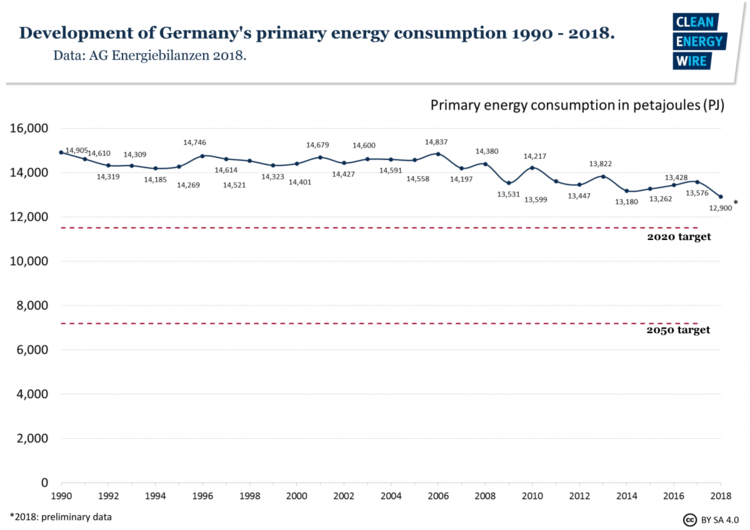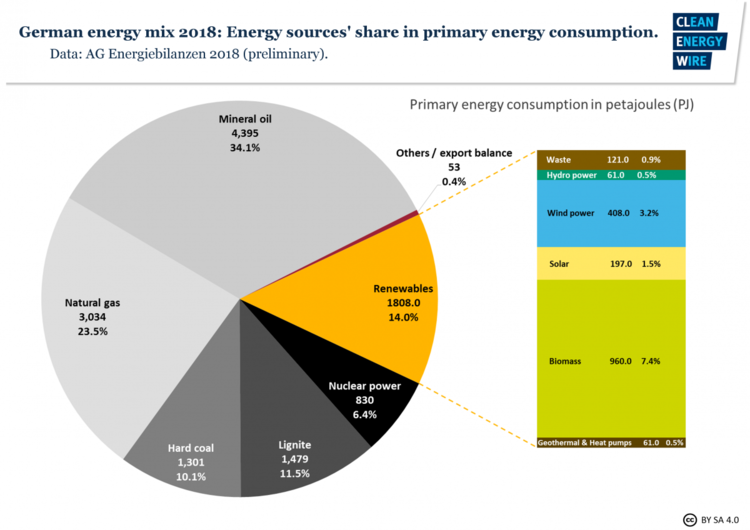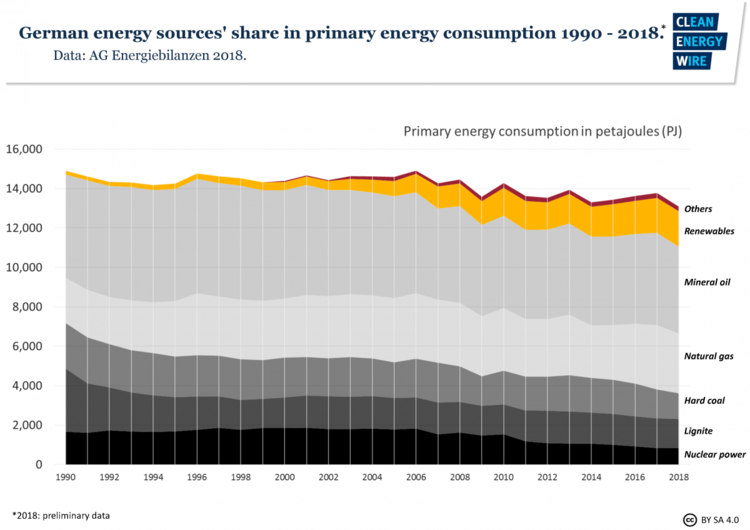By Julian Wettengel | –
( Clean Energy Wire ) –
Germany’s energy-related CO₂ emissions dropped by more than six percent year-on-year as the country consumed “significantly” less energy in 2018, but with a greater share of renewables than last year, said energy market research group AG Energiebilanzen (AGEB). Increased fuel prices, mild weather and better energy efficiency were the main reasons that pushed German energy consumption to the lowest level since the early 1970s. While consumption of energy produced from renewable sources increased slightly, all fossil sources contributed less to the country’s energy mix than in 2017.
In order to lower its carbon emissions, Germany must not only switch to carbon-free energy sources, but must also reduce its overall energy consumption. The government’s 2014 → Climate Action Programme suggested that increasing energy efficiency could cut emissions by 25 to 30…energy efficiency were the main reasons that pushed German energy consumption to the lowest level since the early 1970s. While consumption of energy produced from renewable sources increased slightly, all fossil sources contributed less to the country’s energy mix than in 2017.
Preliminary data by AGEB shows that the share of renewables in Germany’s energy consumption increased to 14 percent in 2018. Because the consumption of all fossil sources decreased at the same time, the energy market research group expects that energy-related CO₂ emissions will have decreased by more than six percent, AGEB writes in a press release.
This largely confirms the group’s estimates from earlier this year Energy-related CO₂ emissions represent about 80 percent of Germany’s total/ Energy-related CO₂ emissions represent about 80 percent of Germany’s total greenhouse gas emissions. The Federal Environment Agency (UBA) is set to release the first official 2018 estimates for total German emissions in March 2019.
The country of the Energiewende – Germany’s dual shift from nuclear and fossil fuels to renewable energy sources – has rapidly increased its share of renewable energies, but emissions have remained stubbornly high mainly due to the continued use of coal power, currently the country’s single largest source of greenhouse gas emissions.
An increase in power production from renewables and higher prices for European Union Emissions Trading System (
Emissions from the power sector fell by 11 million tonnes in 2018 – BDEW
Renewable power sources contributed 35 percent (2017: 33%) to German electricity generation in 2018. The share of
The BDEW calculates that the energy sector thus emitted 11 million tonnes of CO2 less than in 2017. “With this the energy sector stays on track to reducing
Germany’s total energy consumption of 12,900 petajoules in 2018 (-5 percent) still depended almost 60 percent on oil and gas, most of which has to be imported.
All texts created by the Clean Energy Wire are available under a “Creative Commons Attribution 4.0 International Licence (CC BY 4.0)” .






 © 2025 All Rights Reserved
© 2025 All Rights Reserved